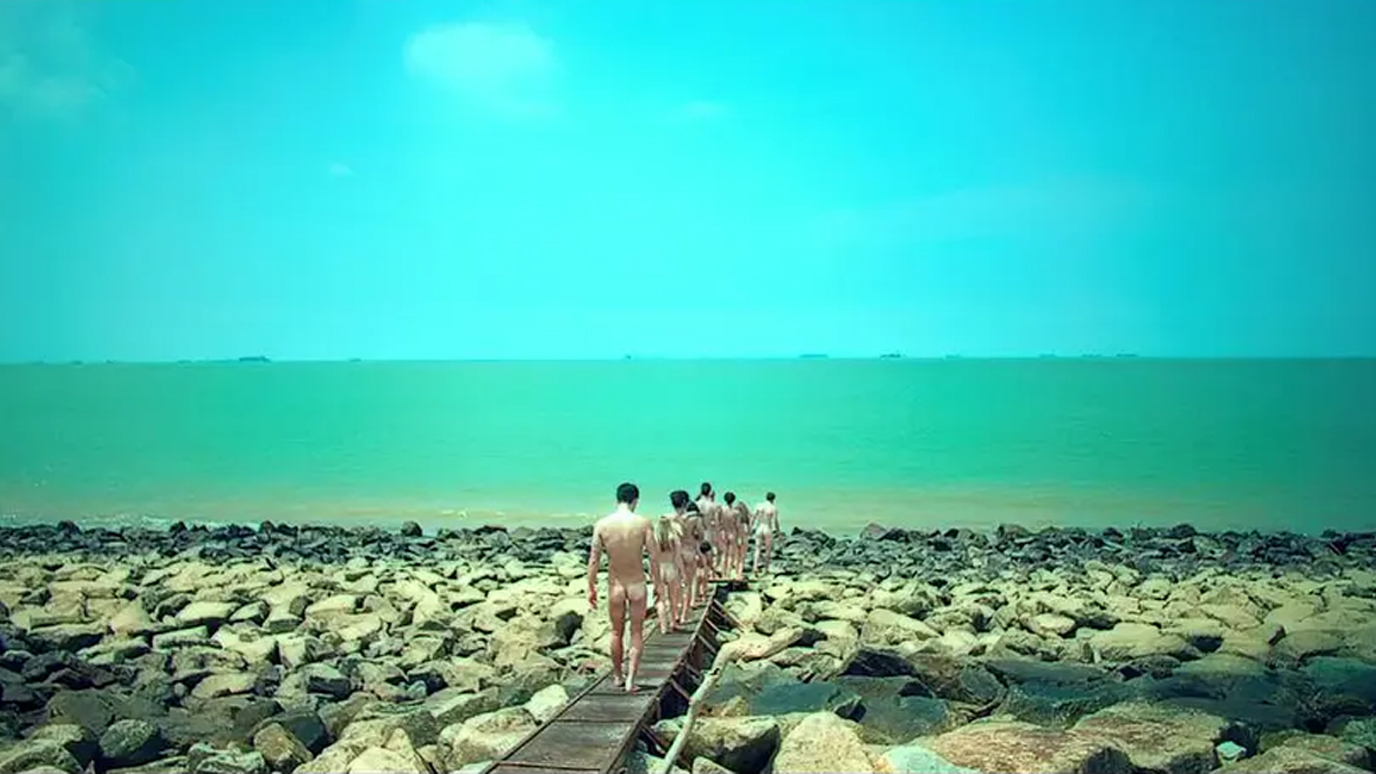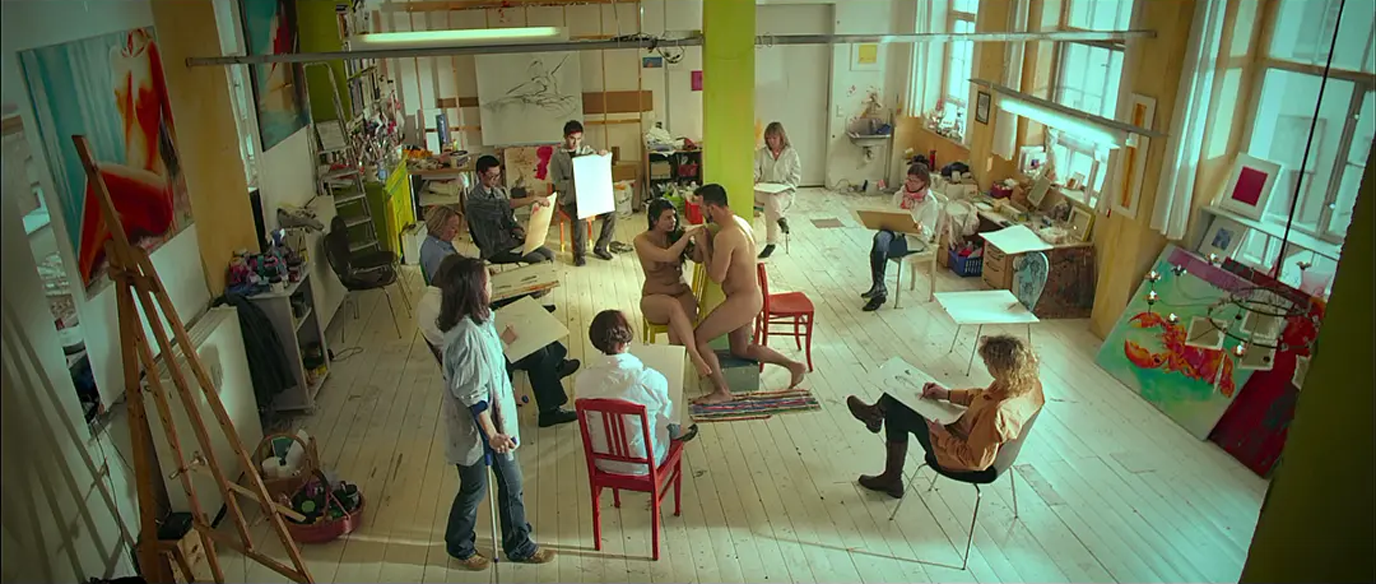
A psychiatrist debating the link between his choice of profession and his mental state, gets on his boat and embarks on a voyage. Grappling with his own depression, he revisits encounters with former patients. His attempt at self-therapy becomes an anthology of short stories, where Yuan (exiled to Inner Mongolia under Mao’s Chinese re-education policy), Ming (a young man with disabilities), Leni (a German columnist coping with the death of her mother) and Sebastian (an artist romantically involved with a young woman in the Netherlands) become the characters.
Voyage is a further cinematic excursion into the depths of the human mind, that offers different perspectives on the realities of depression and delves deep in the search for its source. In doing so a new motif that will become evident in Scud’s later films surfaces – ghosts and the afterlife. The nudity of men stands in for the nudity of souls, and sexual encounters and relationships act as proof of life with distorted undertones. Voyage dances in the space between expressions of radiant vulnerability and absurdity.



